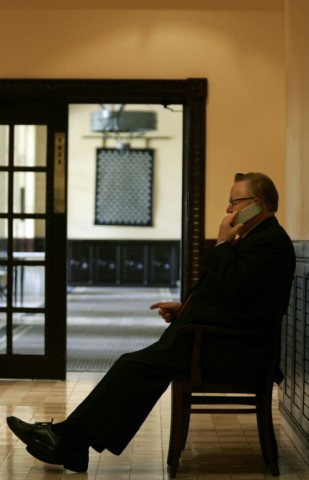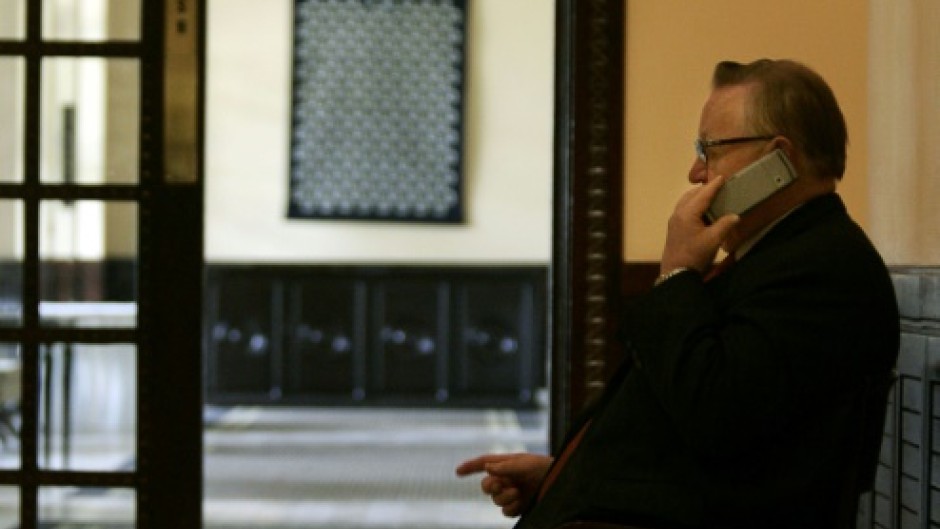HELSINKI - Former Finnish president Martti Ahtisaari, who died Monday aged 86, was a mediator who brokered peace around the globe, winning a Nobel Peace Prize for a formidable career spanning over 40 years.
Ahtisaari had battled Alzheimer's disease, which forced him to retire from public life in September 2021.
The former UN diplomat was credited with overseeing the 2005 talks between the Indonesian government and Free Aceh Movement (GAM) rebels, which brought an end to a three-decade conflict in which some 15,000 people were killed.
Both sides described Ahtisaari, who was president of his native Finland between 1994 and 2000, as steely but with a sense of humour and warmth.
"I have enormous amounts of patience. I don't usually get angry, but I can be tough," he said later, adding that he felt the key to his success was an ability to understand people.
Ahtisaari also helped lead Kosovo down the path toward independence, even though his intense efforts failed to clinch an agreement with Serbia before Pristina unilaterally declared independence in 2008.
- Wartime childhood -
Martti Oiva Kalevi Ahtisaari was born on June 23, 1937 in Viipuri -- now Vyborg -- in Finland's eastern Karelia province, which his family was forced to flee at the end of World War II after it was annexed by the Soviet Union.
He said his childhood experience of war and being a refugee "gave me sensitivity... Perhaps that made me a peace negotiator."
An academic career led him to a teaching post in Pakistan in the early 1960s, before entering the diplomatic service.
Ahtisaari was appointed ambassador to Tanzania in 1973 at the age of 36. Transferring to the UN, he was a special envoy to Namibia, where he helped lead the country towards independence from South Africa in 1990.
"Perhaps the most traumatic experience was on April 1, 1989 when SWAPO (rebel) troops came from Angola and more than 300 people were killed," he recalled.
"If I could manage to sort out that, I have the feeling there is no problem I can't solve," he said.
- Fling with politics -

In 1994, Finland's Social Democratic Party nominated him to run for the presidency and Ahtisaari became the country's first directly-elected president.
"He was a transitional president who guided Finland into the global EU era," current President Sauli Niinisto said after Ahtisaari's passing.
Yet the man of action, who limped as a result of rheumatism, found himself ill at ease with the largely ceremonial role.
His true passion remained foreign affairs and Ahtisaari later likened his six-year diversion into domestic politics to "an extramarital affair".
In 2000 Ahtisaari got involved in the Northern Ireland peace process, inspecting the IRA's arms dumps with current South African President Cyril Ramaphosa.
He was appointed the UN special envoy for talks on the status of Kosovo in 2005 and recommended independence for the breakaway province, only to be repeatedly accused of bias by the Serbs.
His inability to persuade the two sides to agree before Kosovo unilaterally declared independence rankled with him.
- Elder statesman -
In 2008, aged 71, he was awarded the Nobel Peace Prize for his efforts "on several continents and over more than three decades, to resolve international conflicts."
Old age did little to dampen Ahtisaari's drive.
He insisted retirement was "not yet on the cards" as he continued to travel the world promoting peace as part of a group known as the "Elders", including former US president Jimmy Carter, former UN chief Kofi Annan and South African archbishop Desmond Tutu.
After turning 80, Ahtisaari stepped down as chairman of the Crisis Management Initiative (CMI) peace institute he founded 17 years earlier, but continued to be involved in their mediation work.
ehu/po/fg
By Elias Huuhtanen

